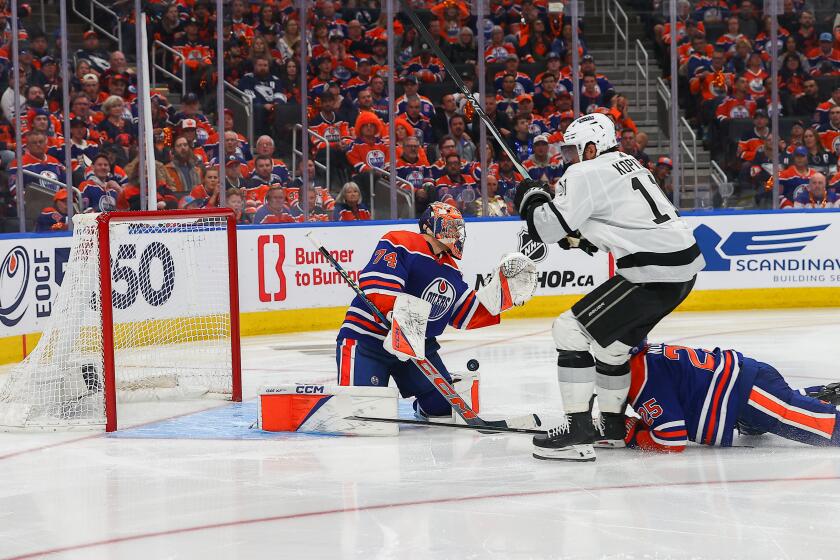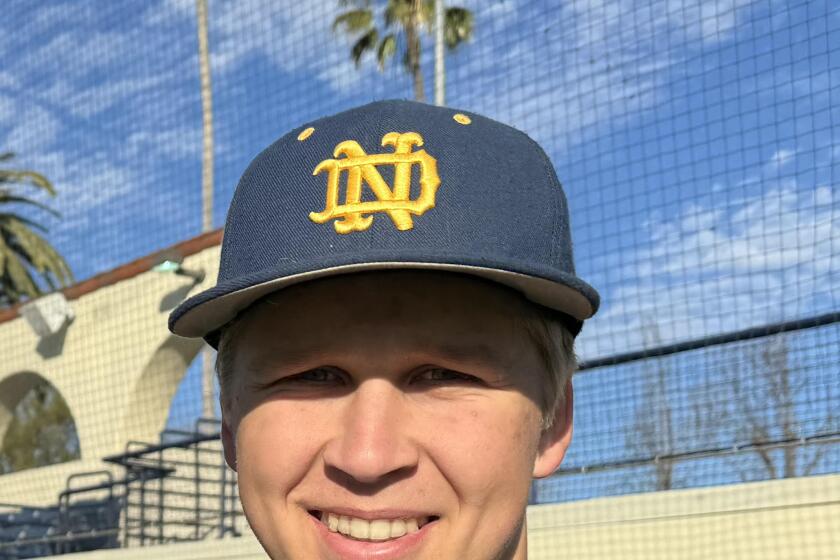Dodgers ask court to keep sealed an element of sale
The Dodgers should not be required to reveal the conditions that govern use of the land surrounding Dodger Stadium, the team argued in a court filing Monday.
Those restrictions include “sensitive non-public commercial information” that should remain sealed, the team claimed. U.S. Bankruptcy Judge Kevin Gross is set to hear the matter Friday, as part of a hearing in which he is expected to approve the sale of the team.
Frank McCourt has agreed to sell the Dodgers to Guggenheim Baseball Management for $2.15 billion, with the parties jointly owning the parking lots that circle the stadium. The lots are owned by a McCourt entity that was not part of the bankruptcy filing, and so Dodgers attorneys have said details of the joint venture need not be disclosed in Bankruptcy Court.
The absence of details such as how McCourt might be involved in the future of the parking lots, and how much money he would receive from them, has frustrated Major League Baseball officials eager for the Dodgers to make a clean break from McCourt ownership.
In Monday’s filing, the Dodgers asked the court to seal the “conditions, covenants, restrictions and easements” that would lay out the standards and limitations for land use by the joint venture.
In support of their request, the Dodgers cited passages from bankruptcy law that authorize the court to “protect an entity with respect to a trade secret or confidential … commercial information” and “protect a person with respect to scandalous or defamatory matter.”
Dodgers spokesman Robert Siegfried said that the documents contained no information that would be damaging to McCourt and that the Dodgers did not ask that they be sealed for that reason.
The land could not be developed without city approval, which would require public hearings and zoning changes.
The Dodgers plan to file the documents in question with Los Angeles County officials before the sale of the team closes, Siegfried said. The documents then would become publicly available.
The sale is scheduled to close April 30.
Jerry Neuman, a Los Angeles land use attorney with the firm Sheppard Mullin, said it is possible the documents could include such information as how the parties in the joint venture would divide revenue or assign liability for insurance claims.
“That’s probably a lot of what they’re covering,” Neuman said.
Thomas Salerno, a Squire Sanders attorney who represented the NHL’s Phoenix Coyotes in their bankruptcy case, said the documents might well contain information on restrictions for land use. He also said sports teams and leagues tend to be far more likely than other businesses to ask bankruptcy courts to seal documents.
“There’s an element of secrecy in these sports cases that’s hard for them to give up,” Salerno said. “If you’ve got the secret sauce, of course you don’t want that to be public.
“But what’s the secret sauce here?”
twitter.com/BillShaikin
More to Read
Get our high school sports newsletter
Prep Rally is devoted to the SoCal high school sports experience, bringing you scores, stories and a behind-the-scenes look at what makes prep sports so popular.
You may occasionally receive promotional content from the Los Angeles Times.






